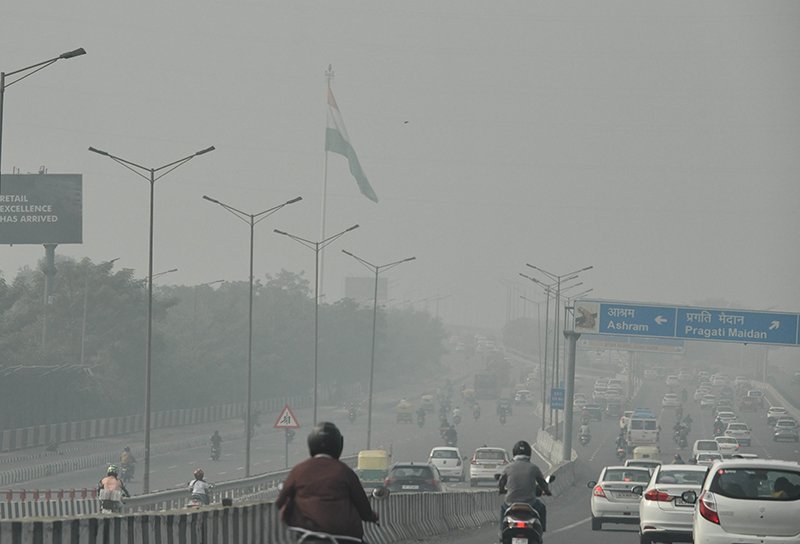
Delhi’s Chief Minister, Arvind Kejriwal, has convened a high-level emergency meeting with key officials, including Environment Minister Gopal Rai, Public Works Department Minister Atishi, Transport Minister Kailash Gahlot, and Health Minister Saurabh Bhardwaj, to tackle the worsening air pollution crisis in the national capital.
This meeting takes place as Delhi faces its annual air pollution crisis, with air quality remaining in the ‘severe’ category for the fifth consecutive day. The overall Air Quality Index (AQI) stands at a staggering 488 on a scale that maxes out at 500. Within the city, some of the worst-affected areas include New Moti Bagh (488), RK Puram (466) in South Delhi, Patparganj (471) in East Delhi, and ITO (402) in the north-eastern part of the capital.
In response to the ongoing environmental emergency, the Delhi government has decided to extend the closure of all schools for students up to Class 5 until November 10. Students in Classes 6 to 12 have the option to attend classes online.
The persistent blanket of toxic smog over Delhi has raised concerns among healthcare professionals, particularly regarding the rising number of respiratory and eye ailments, particularly among children and the elderly.
The crisis is exacerbated by the significant presence of microscopic PM2.5 particles, which can deeply penetrate the lungs and lead to severe health issues. These particles have exceeded the government’s safe limit of 60 micrograms per cubic meter across Delhi-NCR by a factor of eight over the past few days. Even this safe limit is 12 times higher than the recommendation by the World Health Organization, which stands at a mere five micrograms per cubic meter.
In response to the dire situation, the central government has activated the Graded Response Action Plan (GRAP) at its highest level in Delhi and the surrounding areas, where the air quality remains in the “severe plus” category.
The GRAP, established by the Central Pollution Control Board (CPCB), consists of four stages, with Stage IV being the most severe. Stage IV is triggered when the Air Quality Index (AQI) exceeds 450 or falls into the “severe plus” category.
To combat the severe air pollution, the GRAP enforces restrictions on the entry of trucks into Delhi, with exceptions made for those carrying essential goods, providing essential services, or operating on LNG, CNG, or electricity. Only electric, CNG, and BS-VI diesel light commercial vehicles (LCVs) registered outside Delhi are permitted to enter the city, with the same exceptions.
All construction and demolition work in Delhi, including public projects such as roads, bridges, and power lines, has been temporarily suspended. Additionally, both public and private offices may operate with only half of their staff working from their respective homes.
Delhi’s air quality stands as one of the worst among capital cities globally, with a report from the University of Chicago revealing that air pollution reduces life expectancy in the city by nearly 12 years. The ongoing crisis highlights the urgent need for effective measures to combat air pollution and improve public health.
Sources By Agencies

